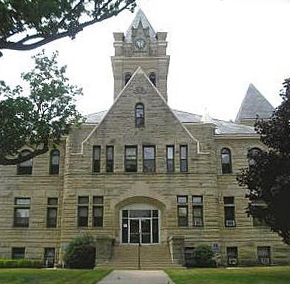 Pulaski County’s tax structure is not sustainable. That’s what fiscal planning consultant Jeffrey Peters told the county council during a public hearing Monday. “You’re on a track that you can’t continue on,” he said, “and those income taxes are going to have to be shifted around in some fashion, in order to get you back to an equilibrium to provide services under a revenue model that does not eat up all your cash over time.”
Pulaski County’s tax structure is not sustainable. That’s what fiscal planning consultant Jeffrey Peters told the county council during a public hearing Monday. “You’re on a track that you can’t continue on,” he said, “and those income taxes are going to have to be shifted around in some fashion, in order to get you back to an equilibrium to provide services under a revenue model that does not eat up all your cash over time.”
Peters explained that several years ago, the council took action to freeze the maximum property tax levy and impose an income tax to offset the lost revenue growth. The problem is that the income tax revenues haven’t been able to keep up. “You’ve been upside down for a long period of time, and by upside down, I mean the income tax that you bring in to offset the property tax is much less than the property tax that you’re trying to offset,” he told council members. “So as units of government – the townships, library, county, et cetera – you are all losing money every year, based on that scenario.”
Peters said the county’s options going forward include reducing the amount of property tax relief covered by income taxes and moving some of the county’s income taxes into other categories, like certified shares, economic development, or public safety. The choice largely depends on how much income tax revenue the county wants to share with townships and public libraries, since economic and public safety tax revenues can only go to towns and the county itself. Peters said there appears to be room to pull back some of the county’s property tax relief before hitting the tax caps set forth in the Indiana Constitution.
He didn’t make any specific recommendations to the county council Monday, but said that he would wait until he completes the county’s fiscal plan, which he hopes to do by mid-December. He added that at this point, it’s too late to make any changes that will impact the 2019 budget, anyway. “If you adopt – I believe it’s prior to September 1 of ’19, you will begin to collect taxes in October of ’19 for distribution in ’20,” Peters explained. “If you adopt after September 1 and before November 1 of ’19, you will begin collection in January of ’20 and you’ll have distribution in 2020.”
Also during Monday’s hearing, Council President Jay Sullivan explained that while council members had previously voted to rescind the secondary homestead tax credit, the change won’t take effect because the action wasn’t done properly.






















